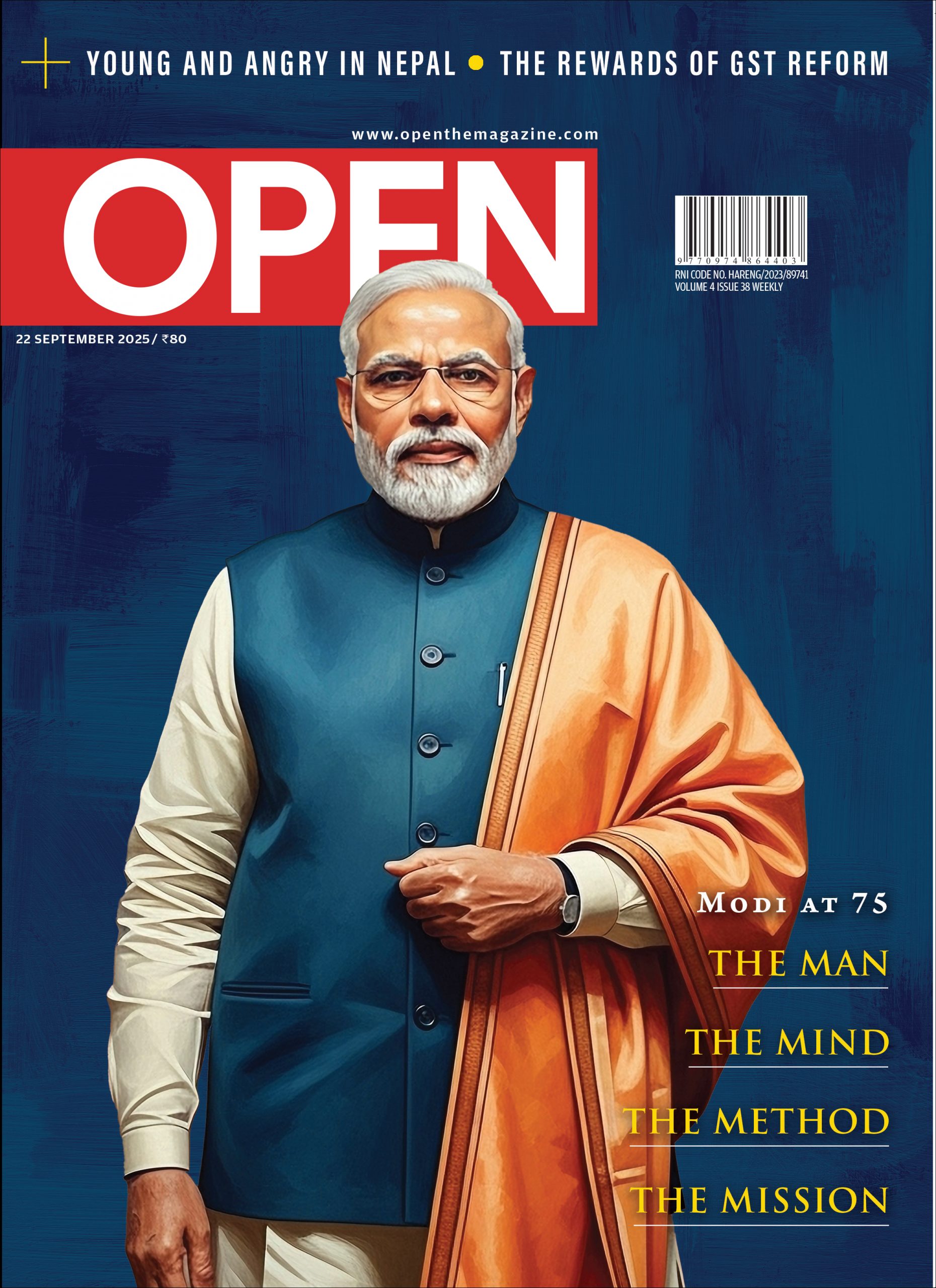Self-Help Writers: Light Motive
The new generation of self-help writers remains staunchly secular and subversive
 Shreevatsa Nevatia
Shreevatsa Nevatia
 Shreevatsa Nevatia
Shreevatsa Nevatia
 |
19 Sep, 2018
|
19 Sep, 2018
/wp-content/uploads/2018/09/Lightmotive1.jpg)
BRITISH PHILOSOPHER AND author Julian Baggini had some reservations about ‘self-help’. He was annoyed by the genre’s tendency to over-simplify and over-claim; ‘Human life is a complex four-dimensional jigsaw in which the right pieces have a habit of changing into wrong ones. Any book which claims to be able to transform your life is pretending otherwise’. Publishers, however, do have a reputation of disregarding their authors’ firmest beliefs. Released in 2012, The Shrink and the Sage came with a subtitle that may well have made Baggini squirm: A Guide to Living. Co-authored with psychotherapist Antonia Macaro, Baggini’s book was being sold in stores as ‘cerebral self-help’.
Despite the packaging, though, the book’s content was novel. Unlike other self-help books, it did not ask you to ‘develop Jedi self-confidence’ or ‘unleash the force within’. Baggini and Macaro quoted Aristotle instead: ‘We become builders by building.’ Making the case that we are responsible for building our character despite our childhood experiences, the authors stressed on making behavioural change a habit. Self-help often invents impossible ideals, so Macaro and Baggini warned against perfectionism. Any improvement, they said, had its limits. ‘It never encompasses all aspects of our lives.’ Without discounting individual complexities, they implored one to do better, not just be better.
In The Shrink and the Sage, Macaro and Baggini often busy themselves with issues that have come to typify the self-help genre. They are concerned with questions of responsibility, emotions, even body image. But rather than throw up platitudes as solutions, they bring to these problems the surprisingly practical wisdom of Plato, Wittgenstein and Kant. What sets them apart from their more conventional self-help colleagues are the filters they use. Any talk of ‘potential’, for instance, has its downside. It places you in a future you have little control over. When wrapping one’s head around this thought, it helps to hear Jean-Paul Sartre say, ‘Reality alone is reliable.’ Macaro and Baggini make philosophy and psychology more usable. The authors give self-help an overhaul. Thankfully, others are signing up too.
A disdain for self-help is commonplace, and Terry Pratchett’s putdown is subtle, yet unsparing. In the novel, The Thief of Time, he writes, ‘Jeremy tried to be an interesting person. The trouble was that he was the kind of person who, having decided to be an interesting person, would first of all try to find a book called ‘How to be an Interesting Person’ and then see whether there were any courses available.’ Pratchett is right. There is something a little trite about self-help books and the people who read them.
For more than a single generation of adolescents, writers such as Richard Bach and Paulo Coelho have been trusted instructors. Their optimism, however, is sometimes hard to reconcile with the complex demands of adulthood. Coelho might insist that ‘when you want something, all the universe conspires in helping you to achieve it’, but the universe, as many of us inevitably learn, remains indifferent. Growing up, we get into our uniforms. We learn to show up. For some of us, though, living feels hard enough. The last thing we need is Richard Bach asking us to grow a seagull’s wings. Self-help and inspirational books are often placebos that only take us that far. They can only make us feel that good.
The therapist’s couch and the psychiatrist’s chamber usually offer us greater comfort. The advice given here is specific, tailored to suit the peculiar tragedies and disappointments of our individual lives. Even though they are felt distinctly by each of its sufferers, we do tend to forget that feelings such as grief, fear, regret, anger and loneliness are afflictions common to most of us. Philosophers, even psychologists, often assume this commonality. Socrates, the Buddha and Freud all employed a vocabulary which, despite being universal, was also personal. The reader’s life was hers to understand.
The ‘new’ and ‘cerebral’ self-help book takes the iconic ideas of these thinkers and renews them. The benefits of quiet, for instance, seem particularly abundant when faced with a hyper social media. In a time when the news inspires a misguided shrillness, Aristotle’s advocacy of an emotional ‘mean’ proves necessarily pertinent. Finding these books scattered around bookstores isn’t uncommon. The shelves of ‘psychology’, ‘philosophy’, even ‘religion’ include these titles. Since none of these books ensures material or spiritual progress, ‘self-help’ isn’t always an obvious choice. What they instead offer is some improved functioning and enhanced enjoyment. Luckily, they keep this sober promise.
It has been a decade since someone checked the commerce of self-help in the US. According to Forbes magazine, Americans spent $11 billion in 2008 on self-improvement books, CDs, seminars, coaching and stress-management programmes. It is difficult to ascertain the extent to which the self-help industry may have grown, but books like The Subtle Art of Not Giving a F*ck (2016) have certainly contributed to its continuing popularity. While the book’s profanities are conspicuous, author Mark Manson succeeds in inventing an authentic voice. He writes like a drunk chain-smoker rambling on about life. Manson had the courage to say that ‘this book doesn’t give a f*ck about alleviating your problems or your pain’. An online review said it best. This was ‘Buddhism for bros’.
Since none of these books ensures material or spiritual progress, ‘self-help’ isn’t always an obvious choice. What they instead offer is some improved functioning and enhanced enjoyment
A New York Times bestseller, The Subtle Art… is proof that Manson’s ‘counterintuitive approach to living a good life’ had its takers. Chapters such as ‘Happiness Is a Problem’ and ‘The Value of Suffering’ showed that the blogger was both on and onto something. Much can be made of the manner in which Manson speaks, but it’s what he is saying that sounds like an obvious departure: ‘The desire for more positive experience is itself a negative experience.’ While there is no threat to self-help writers who deal in superlatives, there are some outliers who are reinventing the genre for cynics and sceptics too.
Between the years 1999 and 2014, the number of antidepressant users in the US rose by 65 per cent. When last surveyed, one in eight Americans was being medicated for depression. Though there’s something a touch everyday about these statistics, it does necessitate an inquiry. In treating our mind, what limits do pills have? Can literature perhaps be therapeutic? Can philosophers cure despair?
Gordon Marino’s The Existentialist’s Survival Guide: How to Live Authentically in an Inauthentic Age (2018) turns to the likes of Albert Camus and Søren Kierkegaard for answers. The existentialists, who Marino calls ‘a veritable cadre of neurotics’, were not canonised for either their cheer or optimism. Camus, for instance, had historically written, ‘There is but one truly serious philosophical problem, and that is suicide.’ Kierkegaard could be equally bleak. In the hands of Marino, however, their existentialist writings seem to dull the assaults of anxiety, depression, despair and death. There is little gloom here.
The Existentialist’s Survival Guide is an odd self-help book. Marino writes more in the first person than in the second. Describing his battle with anxiety, he says, ‘[When anxious], the only thing I can glimpse is a world that snarls like a pit bull on a short leash.’ Marino ingests pills to take the edge off, and at no point does he prescribe that his readers should disavow their medication. He only asks them to understand their pit bull better. Because the scenarios an anxious mind conjures haven’t yet been realised, Marino paraphrases Kierkegaard to say, ‘Anxiety is about the future, and because of this, it impedes our ability to live in the moment.’ Once its patterns are familiar, anxiety seems less torturous.
While Marino’s observations are often precise— ‘Depression is a disturbance in the way that we talk to ourselves’—his touch remains light. Authors of the new iconoclastic self-help book seldom shy away from death or its inevitability, but Marino dedicates an entire chapter to dying. He doesn’t once romanticise mortality, however. He instead offers a view of death that prizes the world: ‘Don’t be careless with the people you walk through life with. Don’t have arguments and leave them unsettled.’
Finally, Marino’s self-deprecation is as effective as his brevity. Drawing an honest self-portrait, Marino applies existential theory to his own life before he goads others to practise it. Never predicting the specificity of his reader, Marino goes on to master an empathy that seems oddly transferable. At one point, he writes, ‘A Buddhist teacher once told me that all the self-improvement regimes were tinged with violence since they all presupposed a lack of self-acceptance, that you are not good enough to start with.’ Marino and his cohort are usually careful. They’re never seen making such rookie mistakes.
The Buddha, it is believed, never spoke of God. This present generation of subversive self-help writers too remain staunchly secular. They wholly preclude the divine hand and its intervention. They do, however, like talking about the Buddha. Endorsed by Siddhartha Mukherjee, Pankaj Mishra and Ann Patchett, Mark Epstein has, for some years now, been writing about the confluence of Buddhism and psychotherapy. In his new book, Advice Not Given: A Guide to Getting Over Yourself (2018), Epstein writes, ‘Buddhist psychology and Western psychotherapy both hold our hope for a more flexible ego, one that does not pit the individual against everyone else in a futile attempt to gain total surety.’ As both a Manhattan psychiatrist and Buddhist, Epstein says our ego catalyses our hopes and disappointments.
Sigmund Freud and the Buddha both employed the word ‘ego’ regularly, but it is in Epstein’s frequent juxtapositions that something altogether radical happens. Buddhist belief and psychoanalytic thought authenticate each other. They provide answers to the other’s questions, and they each provide relief from one’s usual identity. Our culture, Epstein tells us, does much to encourage a stronger sense of self, but our efforts ‘are not enough to guarantee well-being’. By shoring up the self, we do nothing to help it. We don’t, for instance, become affectionate or empathetic. For Epstein, his book is ‘a how-to guide that refuses a quick fix’, but for the tired genre of self-help, Advice Not Given is also a revolt.
OVERUSED BY YOGA practitioners and motivational gurus, the word ‘mindfulness’ has sadly become hackneyed. Epstein’s definition—‘Mindfulness holds up a mirror to all the activity of mind and body’—does perhaps reinstate some significance. The Buddhist interpretation of mindfulness is not too different from the Stoic instruction of living in the present. Roman philosopher Seneca had once said, ‘You must dispense with these two things, fear of the future and remembering ancient woes.’ In her book, More Than Happiness: Buddhist and Stoic Wisdom for a Sceptical Age (2018), therapist Antonia Macaro finds several parallels between these disparate schools of thought. ‘Their insights,’ she writes, ‘seem to get to the heart of our experience of life in a way that other philosophies don’t.’
By defining life as suffering, the Buddha possibly put off some prospective followers who were looking for a vision more upbeat. Strangely, the likes of Macaro and Epstein suggest that Buddhism is, in fact, a cheerful religion. Rather than subject us to fatalism, Buddhist scripture gives us agency. We determine our response to suffering. Wallowing and witnessing are both clear choices. Stoic philosopher Epictetus had a similar idea. He’d said, ‘People are disturbed not by things, but by the view they take of things.’ Macaro tells us that the now fashionable Cognitive Behavioural Therapy (CBT) was developed with this claim in mind. More Than Happiness becomes a DIY kit. It encourages you to monitor your thoughts and actions. It reminds you that your heart, much like your favourite cup, may just break one day. Enlightenment is not Macaro’s goal, but daily wisdom is. The author speaks of a sign she once read: ‘Things to do today: breathe in, breathe out.’ It is, in the end, a start.

/wp-content/uploads/2025/09/Cover-Modi-scaled.jpg)













More Columns
I Missed A Flight Thanks To Robert Redford, Plus He Took My Magazine! Alan Moore
Robert Redford (1936-2025): Hollywood's Golden Boy Kaveree Bamzai
Surya and Co. keep Pakistan at arm’s length in Dubai Rajeev Deshpande